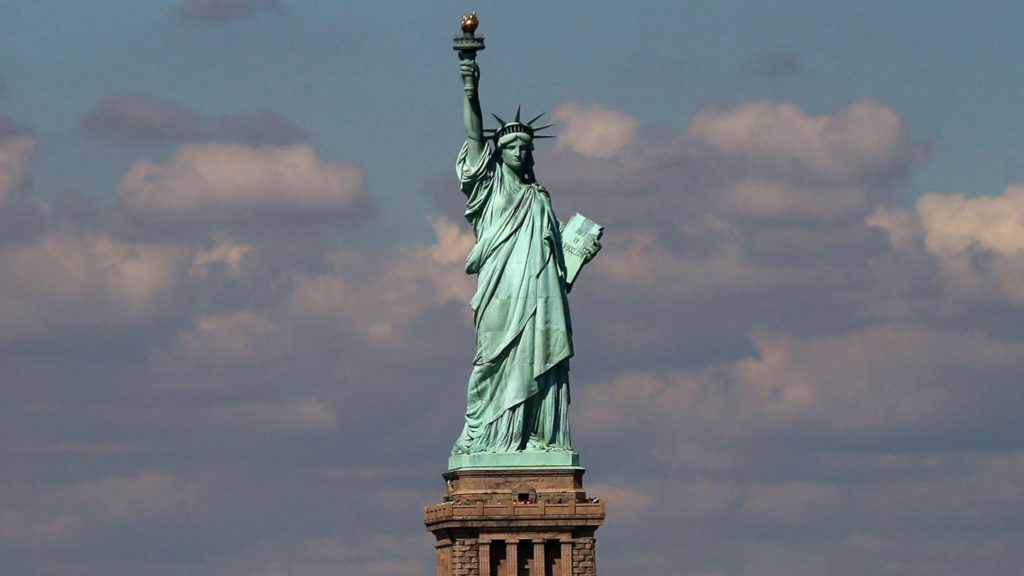
I have long thought of America’s Statue of Liberty as a beacon of hope for people around the globe. To me it suggests America is a nation where government leaders value honesty and truth. Where those who govern live by a high standard and do not deceive the people. From the very beginning, the words of U.S. presidents, senators, state governors, big city mayors, business leaders and others have supported this lofty vision. Until recent years, it has been a source of hope and inspiration for many.
Observing the U.S. president over the past four years, and the recent election, I’ve concluded that the symbolism of the statue has been seriously tarnished. By clever use of social media, Donald Trump has convinced a huge swath of the U.S. public that the nation’s electoral system, institutions, media, and political opponents have been corrupted. He has championed the idea that the media are guilty of propagating fake news, while he himself is unabashedly spreading falsehoods. And he has persuaded top Republican Party leaders and numerous influential individuals to fall in step behind him. With his many tweets and harangues, he has convinced his followers to believe the worst about their country.
Hoping for a more objective perspective, I turned to a foreign source. Writing in the November 3 Jerusalem Post, Maayan Jaffe-Hoffman observed that “trolls have provoked and inflamed discourse, and technology has made it possible to control the actions, and maybe even the minds of potential voters in America.”
Trump’s allies have demonstrated an uncanny knack for employing the internet to decimate voters’ confidence in his opponents. In one case a digital editor manipulated content to persuade viewers Joe Biden didn’t know what state he was in. In the video Biden greeted the crowd with “Hello Minnesota!” The editor changed the signs behind him from Minnesota to Tampa, Florida. This was to reinforce Trump’s depiction of Biden as “Sleepy Joe”. Before it was taken down, the video received over a million views and almost certainly planted doubt in the minds of some voters concerning Biden’s capacity to govern America.
Professor Michael Dahan of Sapir College in Israel, an astute observer of American politics says “infusing fake news into the public sphere is exactly like poisoning wells, because it affects public ability to reach conclusions on the basis of factual information.” He says further “to bypass social networks, Trump has used a sophisticated election application with a social media-like feed, full of attacks against Biden and others, without revealing who wrote the content or where it came from.” The ease of creating fake news today through digital tools compounds the challenge. Tehilla Shwartz Altshuler of the Israel Democracy Institute believes “this is a transparent attempt to keep voters within the universe of alternative facts of the Trump campaign.”
Well, now this chapter in U.S. history is almost over, even if Donald Trump cannot yet grasp that he will no longer be president. Having watched this pretty dramatic episode unfold over four years from our side of the forty ninth parallel, I’m likely not the only one experiencing a sense of unease at the delicate nature of American democracy. This is the nation many of us look to as an example of what it means to live in freedom under a government that is elected to serve the people.
How is it possible that Republican Party mandarins have endorsed, seemingly with few questions, the decisions of a leader who lied to his people, praised ruthless foreign dictators, disdained longstanding global alliances, refused to disavow white supremacists, and cast doubt on the legality of the American electoral system? Equally puzzling is the willingness of some 70 million U.S. citizens to cast their precious ballot in support of his candidacy. Is there such a deep level of discontent in America that people chose to believe Trump’s distorted version of the truth?
Prior to the election several friends, keen observers of American politics, told me if they lived in the U.S. they’d vote for Trump. Possibly I would have voted for him too, if he was less volatile, less divisive, more truthful and committed to fostering reconciliation between disputing perspectives.
I very much hope Joe Biden will be able to help Americans again have faith in their democracy. A united, optimistic America will once more give citizens of the world reason to feel inspired when they look at the Statue of Liberty.
